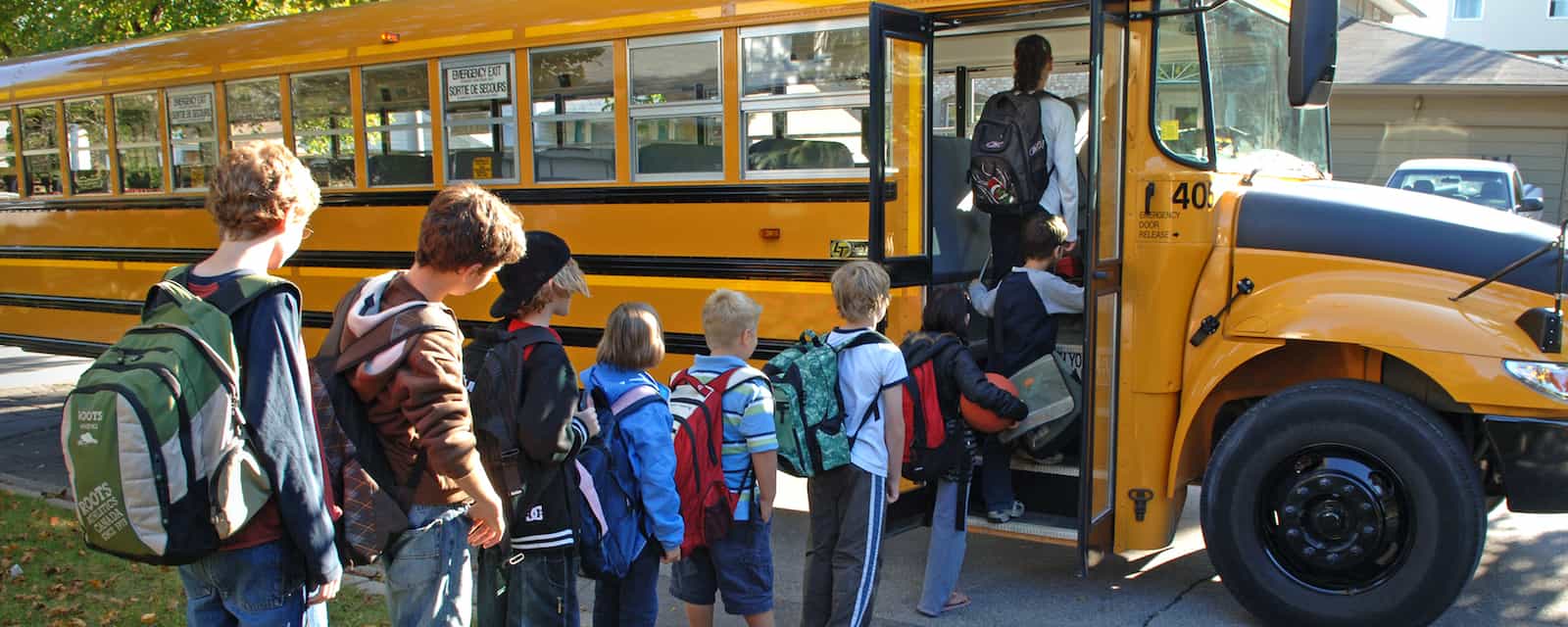North Durham councillors, mayors call for changes to school bus policy that leave parents feeling “abandoned”
Published November 30, 2021 at 1:05 pm

Parents and politicians from northern Durham are calling out Durham District School Board (DDSB), Durham Student Transportation Services (DSTS) and the Provincial Government for what they call inadequate and dangerous school bus drop-offs along regional highways.
Scugog Councillor Deborah Kiezebrink led a delegation to last week’s Regional Council meeting to highlight last year’s bussing changes that stopped at home pick-ups and moved stop locations to busy regional highways.
In a video exhibit Kiezebrink and Regional Councillor Wilma Wotten outlined the changes affecting families who live on dead-end streets. Some kids now have to walk more than two kilometres to new bus stops when they were previously picked up in front of their homes.
In the video Kiezebrink highlights two stop locations, one in front of a rickety creek overpass with an evidently long-neglected guardrail, and another showing a congregation of children at the roadside of a blind hill. The speed limit along the highways is often 80 km/h.
Underscoring the dangers of stops at the bottom of blind hills, Kiezebrink noted the case of Cormac and Shea Kerin, siblings from Port Hope who were struck by a car while waiting for the bus. Cormac, 12, was killed and Shea, 11, spent months in hospital recovering from broken bones and injuries to her brain.
Previously buses would go down the dead-end roads before making a three-point turn in driveways to come back out. DSTS decided continuing these process was impractical.
The Councillors noted DSTS policy specifies they are able to use alternative methods. However the DSTS policy document they reference focuses on medical or disability grounds for alternatives.
Kiezebrink said in her delegation that Scugog has drafted two motions calling for policy changes but received no response from the Ministry of Education. The Ministry of Transportation did respond to requests from Uxbridge Mayor Dave Barton and Port Perry Mayor Bobbie Drew to amend the policy to include three-point turns, per Kiezebrink.
According to Kiezebrink, the DSTS CEO said since it’s “just a guideline” they don’t feel the need to follow the new Ministry of Transportation policy.
Kiezebrink additionally claimed DSTS directed her and other concerned resident to take up the cause with local municipal councils to build bus turnarounds into the road.
These would be major and expensive construction projects that, according to a Scugog staff report, would cost about $150,000 between two turnarounds on William Point Road and Beacock Road.
Councillor Granville Anderson called a the issue a matter for the school boards and not municipal or Regional governments, referring Kiezebrink back to board trustees.
However, Kiezebrink replied that had been done through the route-change requests and formal delegations to school board meetings to no avail, and cited this as the reason ten municipal governments have joined Scugog’s call for the province to step in.
The municipalities want Provincial funding for school transportation to be tied to responsiveness to bus stop change requests. In another example of the impact of the lack of changes she cited Rui Webster, a young boy from Ajax who has had both feet amputated.
Webster’s bus stop was moved 50 meters to from his previous stop resulting in repeated falls and challenges from snow banks. The school board has refused to move the stop back to its previous location despite international headlines, and numerous calls for change from Webster’s parents and the community.
Drew for her part has called for change among the Small Urban GTHA mayors, but didn’t think it went quite far enough and seconded Wotten’s motion to call for an amendment.
Barton, after meetyings held with the Province, put the onus squarely on the shoulders of DSTA, who is responsible for the management and administration of all home to school transportation for students in the region, “I believe this is solely with DSTS. They’re unresponsive. They are inflexible, and I don’t think they’re serving our kids.”
Barton says DSTS initially blamed the provincial mandate against backing up busses, but once that mandate change decided not to change policies anyway. “I’m incredibly frustrated with DSTS,” he said.
Meanwhile many parents, according to Barton, now drive their kids to school.
INdurham's Editorial Standards and Policies




